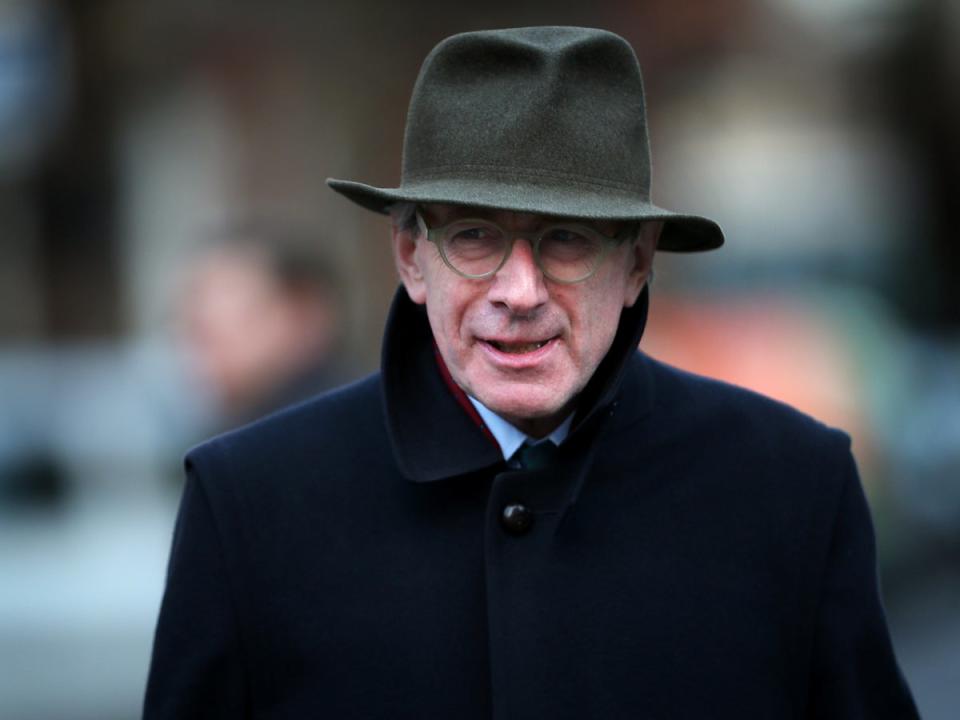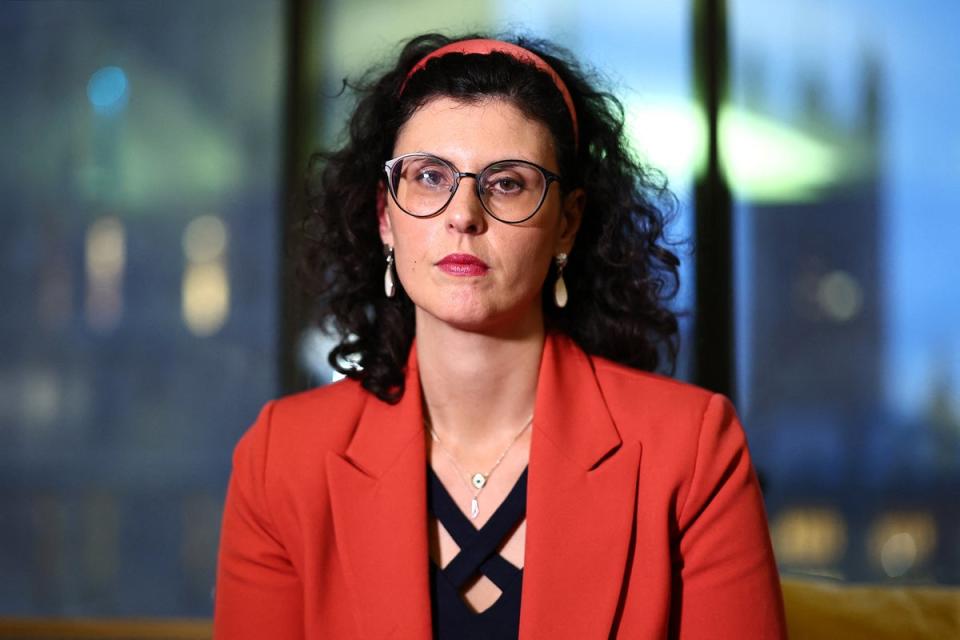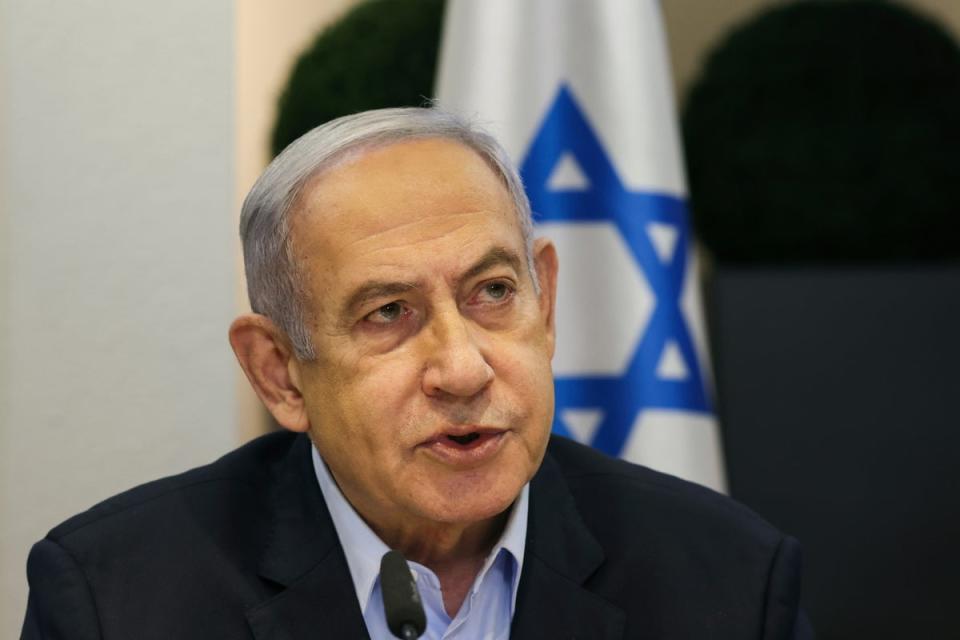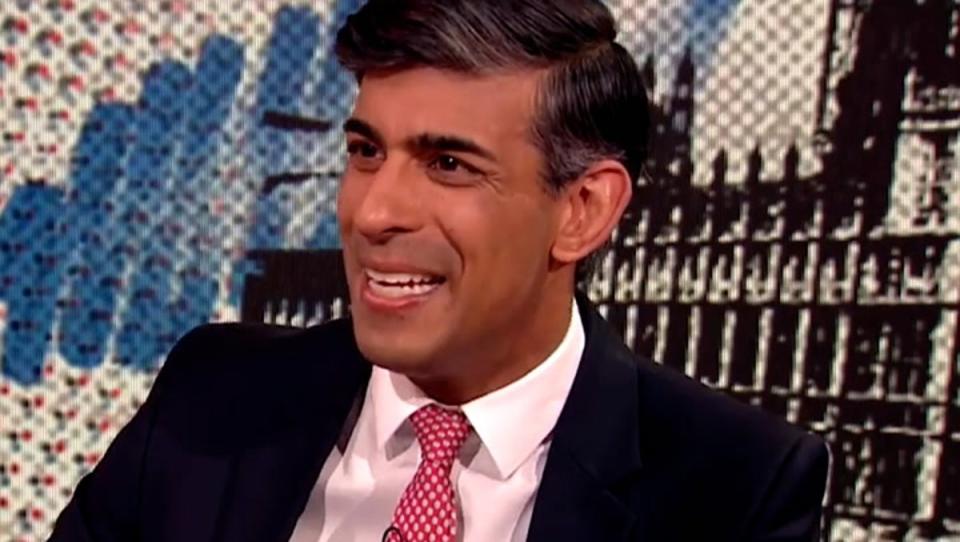Calls grow for Rishi Sunak to stop UK arms trade to Israel NOW

Rishi Sunak is under mounting pressure – including from within his own party – to immediately suspend arms sales to Israel amid a growing chorus of opposition to the number of civilians killed in its war on Hamas.
The prime minister faces calls from Tory grandees, hundreds of lawyers, dozens of MPs and peers from across the political spectrum, as well as top military commanders to halt arms exports to the nation.
Mr Sunak has also been urged to exert Britain’s influence on Israel to force a change of approach in how Israel Defence Forces (IDF) conducts the invasion.
Days after the slaughter of seven aid workers, three of them British, The Independent joins the call for the sale of arms to Israel to stop.
Conservative former foreign secretary Sir Malcolm Rifkind said Britain must suspend arms sales to Israel unless it demonstrates an urgent change in the behaviour of the IDF.

The former cabinet minister said unless Israel offers Britain and other backers “credible evidence” that it is changing the instructions being given to its troops, Britain should stop providing it with weapons.
“It is a question of the instructions given to the military as to how much care you have to take to avoid mistakes or collateral damage,” he told The Independent.
“It is very difficult to believe the rules of engagement being used by the Israel Defence Forces, not just in this instance but increasingly over the last few weeks, meet the standard that ought to be applied.”
Sir Malcolm said that, without evidence of a change in approach, “it is almost impossible to justify continuing to help them with the provision of arms”.
The government does not directly supply Israel with weapons. Instead, it grants export licences for British companies to sell arms to the country and can block those sales by suspending the licences.
The UK has taken this course twice before. Margaret Thatcher’s government suspended arms exports following Israel’s 1982 invasion of Lebanon, while Tony Blair’s government blocked sales of some military equipment in 2002.
Sir Malcolm, who served in Thatcher and John Major’s governments, said if Israel is not prepared to change course, “then there have to be consequences”.
But the former defence secretary dismissed the idea Israel has deliberately targeted civilians or aid workers as “nonsense”.
He said that in the country’s “understandable zeal” to get rid of every Hamas terrorist, “the precautions any army has to apply to avoid collateral damage are not as rigorous as they should be”.
His stance was echoed by figures including Sir Nicholas Soames, the grandson of Winston Churchill, and Mark Logan, a parliamentary private secretary in the Department for Work and Pensions. Sir Alan Duncan, who served as a minister between 2010 and 2019, voiced concerns from Conservative ranks in strongly condemning Israel’s killing of the aid workers as “merciless”. Conservative MPs Flick Drummond and David Jones also called on the government to suspend arms to Israel.
Layla Moran, an MP whose family have just escaped the Gaza Strip after being trapped in the war-torn territory for months, told The Independent that a suspension of arms exports would send a “powerful message”.
“It would send a powerful message not only to the US but also the Israeli government that if it breaks international humanitarian law it cannot do so without consequences,” said the British-Palestinian Liberal Democrat.

“It will also send a message to those in Israel who are resisting Netanyahu, that the international community will no longer allow Israel to act with impunity if it breaks the law.”
Ms Moran also called for “an immediate bilateral ceasefire so that no one is put in harm’s way British or not”, adding: “That is the only immediate answer to stopping the killing right now.
“There is a sea change in British public opinion right now but it shouldn’t have taken the deaths of brave British aid workers and tens of thousands of people in Gaza for that to happen.”
General Sir Richard Dannatt, the former head of the British army, called on Mr Sunak to “look very carefully” at what Britain sells to Israel and said ministers should ensure Britain’s defence relationship with the country remains within international law.
He said the prime minister should take note of “the very large number of legal professionals who are concerned about this”.
But Lord Dannatt added that it is “not just a legal issue, it is a moral issue, and we need to think very closely whether we are on the right side of the moral line on this”.
“There is no doubt that Israel had right on its side, in war terms, to decide to go on the offensive against Hamas,” he said.
But he added: “What is not reasonable is the way they have conducted themselves, they have killed far too many people, and far too many people who are innocent Gazan citizens wrapped up in their attempts to kill Hamas terrorists.”
Sir Malcolm and Lord Dannatt’s interventions came after Sir Alex Younger, ex-head of M16, said the aid workers’ deaths showed Israel was using “systematic targeting” that risked slaughtering innocent people by mistake.
He said Benjamin Netanyahu was in danger of squandering Israel’s right to claim a “moral purpose” in the war with Hamas over the “reckless” killings.

More than 600 lawyers, including former Supreme Court president Lady Hale, have signed a letter to the prime minister warning that the government risks breaching international law by continuing to export weapons to Israel.
The signatories said the worsening situation in Gaza and the International Court of Justice’s conclusion that there was a “plausible risk of genocide” obliged the UK to suspend arms sales to the country. Palestinian health officials say nearly 33,000 people have been killed in the conflict so far. More than 200 aid workers have died.
Former Supreme Court justice Jonathan Sumption was a signatory. He told Sky News: “The point about having an obligation to prevent genocide is that you have to take steps to ensure that it doesn’t happen, or it doesn’t continue.
“It is perfectly clear, therefore, that to supply arms to Israel is not consistent with our obligations.”
Meanwhile, Labour’s shadow foreign secretary, David Lammy, urged the government to publish any legal advice it had received on whether Israel had broken international law, and to suspend arms sales if there was a risk weapons could be used in “a serious breach of international humanitarian law”. The SNP and the Liberal Democrats have also called for arms exports to be suspended.
Labour MP and former frontbencher Dr Rosena Allin-Khan said Israel’s killing and destruction in Gaza was “indiscriminate” and had been “horrifying to witness”.
Downing Street has declined to say whether it believes Israel was operating within international humanitarian law, saying it would not comment on legal advice.
Israel’s highest-ranking military officer has apologised for making a “grave mistake” after the seven World Central Kitchen aid workers were killed.

British victims John Chapman, 57, James “Jim” Henderson, 33, and James Kirby, 47, were part of the WCK security team.
They died alongside American-Canadian dual citizen Jacob Flickinger, 33; Australian national Lalzawmi “Zomi” Frankcom, 43, who was the leader of the relief team; Polish national Damian Sobol, 35; and Palestinian Saifeddin Issam Ayad Abutaha, 25.
The IDF attacked the aid convoy because officials believed an armed member of Hamas was travelling with the group, though no such person was with the aid workers, Haaretz reports.
An Israeli army source told the outlet that the strike wasn’t a matter of poor coordination, but rather because “every commander sets the rules for himself”.
The charity had just offloaded 100 tonnes of food aid from a barge which sailed from Cyprus when Israel attacked its vehicle convoy on the Gaza coastal road in Deir al-Balah.


